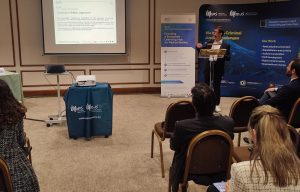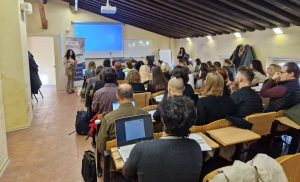A new European project is focused on refugee integration as a path to preventing radicalisation. The initiative will enhance law enforcement agencies (LEAs) and non-governmental organisations’ (NGOs) competencies to work with these vulnerable individuals.
Refugee crises have been pressingly affecting Europe since 2015. By the end of 2016, over 5 million refugees reached European shores following the critical situation in Middle East countries such as Syria, Iraq, or Afghanistan (United Nations High Commissioner for Refugees [UNHCR], 2016).
In 2021, crossings increased, mainly from the later, due to the resurgence of the Taliban and the overall picture of a globe embroiled in severe conflicts (UNHCR, 2021). On top of this, 2022 has been posing new challenges to Europe in light of the Russian-Ukrainian conflict. According to UNHCR (2022), over 13 million individuals have fled Ukraine to neighbouring countries (e.g., Poland, Romania, Slovakia, Moldova) as of October 7th, although it is still to be seen if these countries will function as transit jurisdictions, temporary settlements, or resettlement countries.
The massive inflows of refugees, especially in 2015, coincided with terrorist attacks on European soil, deepening a mediatised fear of Islamist terrorists being hidden in the refugee flows (Elefheriadou, 2018). Even though research (Schmid, 2016, p. 45) demonstrates that the “short-term likelihood that recent refugees arriving in Western Europe become radicalised is very low”, refugees’ vulnerability to engage in radical/extremist viewpoints and/or activities might increase.
In fact, “if [refugees] are not fully integrated in host societies, they might develop resentment and with some that anger might become so strong that they – or more likely, their children – turn against the host society. That has been one of the reasons why so many of the foreign fighters from Europe were the sons of immigrants” (Schmid, 2016, p. 45).
Hence, while the number of recent refugees involved in radical or violent extremist activities remains very limited, the European Commission’s Radicalisation Awareness Network (2020) defends that these individuals can be affected by certain risk factors at stake in radicalisation processes, therefore putting them at risk of engaging into a radical viewpoint or, eventually, perpetuating violent extremist acts.

That’s why the IN2PREV “Law enforcement and community cooperation and training approach to prevent radicalisation by ensuring refugees’ successful inclusion” project has been approved by the European Commission’s Erasmus+ programme. IN2PREV will strive to comprehensively enhance LEAs and NGOs’ competencies and knowledge regarding working with refugees and asylum seekers, thus boosting their crucial involvement in integrating these populations and preventing radicalisation.
To promote knowledge and experience exchanges among these actors, the project’s activities will include the creation of an EU-wide network of LEAs and NGOs. Moreover, the initiative will work on the production of a “Frontline Extremism Vulnerability Risk – Structured Evaluation Screening (FEVR-SES) tool”, which will be implemented by staff from LEAs and NGOs to assess refugees’ vulnerability to radicalisation.
The project also entails the development of a mentoring programme focused on the successful inclusion of refugees and asylum seekers.
IN2PREV is set to start on the 1st of November, 2022 and will be implemented throughout the next three years.
Know more about this project

IN2PREV
Law enforcement and community cooperation and training approach to prevent radicalisation by ensuring refugees’ successful inclusion
The IN2PREV project Consortium is coordinated by BSAFE LAB – University of Beira Interior (Portugal) and also includes the Polish Platform for Homeland Security (Poland), the Euro-Arab Foundation for Higher Studies (Spain), IPS_Innovative Prison Systems (Portugal), the European Association for Social Innovation (Romania), the Academy of Police Forces (Slovakia), the Center for Security Studies (Bosnia and Herzegovina), the General Police Inspectorate (Moldova), and the Bureau of Migration and Asylum (Moldova).
For more information on the IN2PREV project, please visit its page.
Related projects
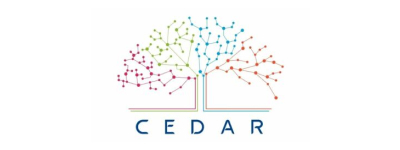
CEDAR
Continuing Education Against Radicalisation

EUTEx
Developing a European framework for disengagement and reintegration of extremist offenders and radicalised individuals in prison

HOPE
Holistic Radicalisation Prevention Initiative (Balkan countries)
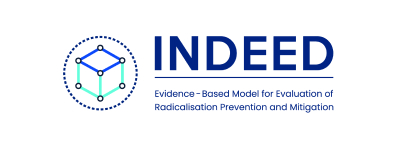
INDEED
Strengthening a comprehensive approach to preventing and counteracting radicalisation based on a universal evidence-based model for evaluation of radicalisation prevention and mitigation

INTEGRA
Integrated Community, Probation and Prison Services Radicalisation Prevention Approach

MIRAD
Multi-Ideological Radicalisation Assessment towards Disengagement

PARTES
Participatory Approaches to Protecting Places of Worship

PRACTICIES
Partnership against Radicalisation in Cities

R2COM
Radicalisation and violent extremism prevention in the community
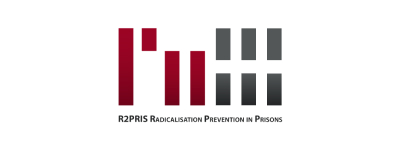
R2PRIS
Radicalisation Prevention in Prisons
Related news

Empowering communities to support integration: a first step in preventing radicalisation
Read More »
“EU Knowledge Hub on Prevention of Radicalisation”: European Commission Launches a €60 Million Initiative for the next 4 years
Read More »